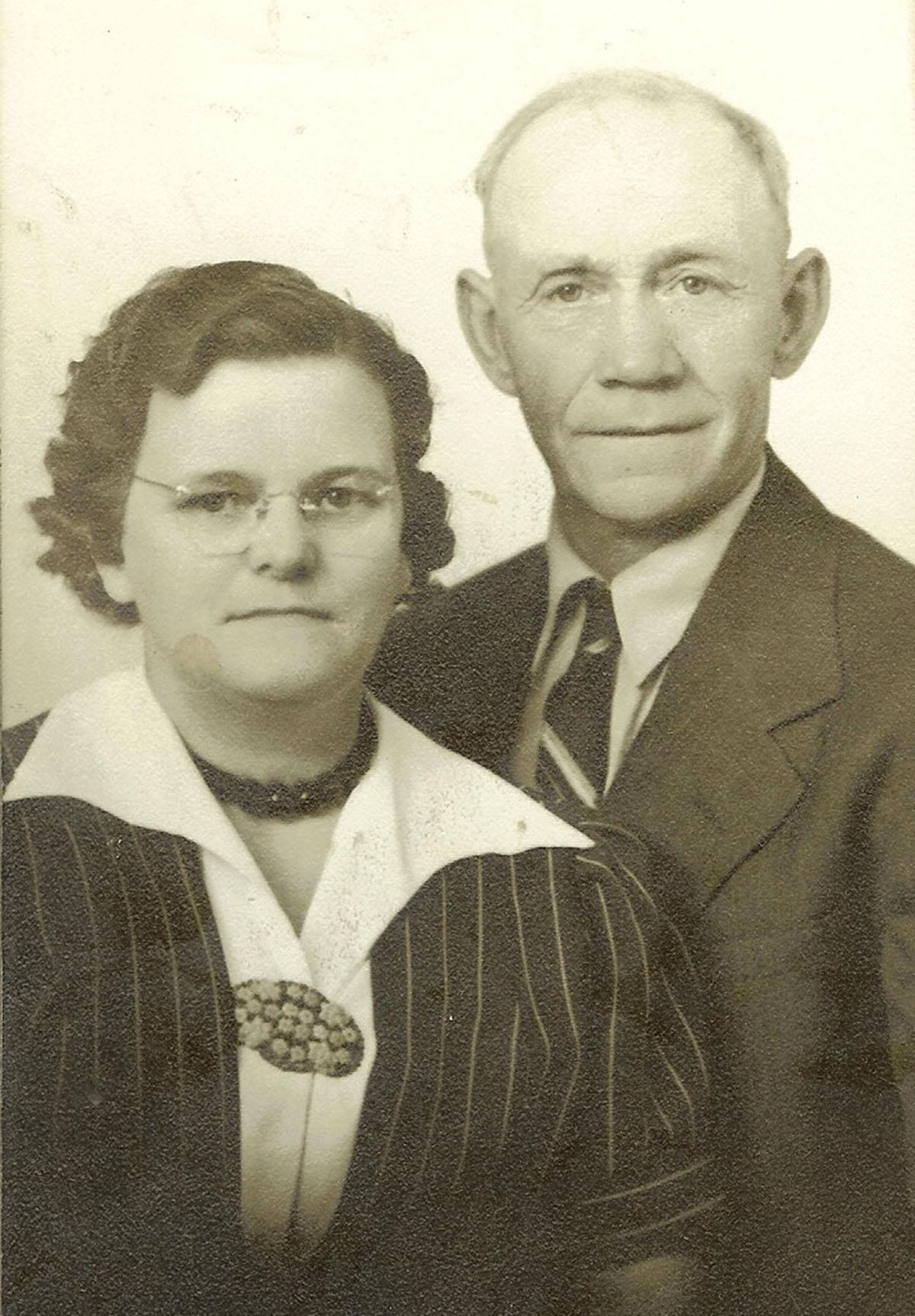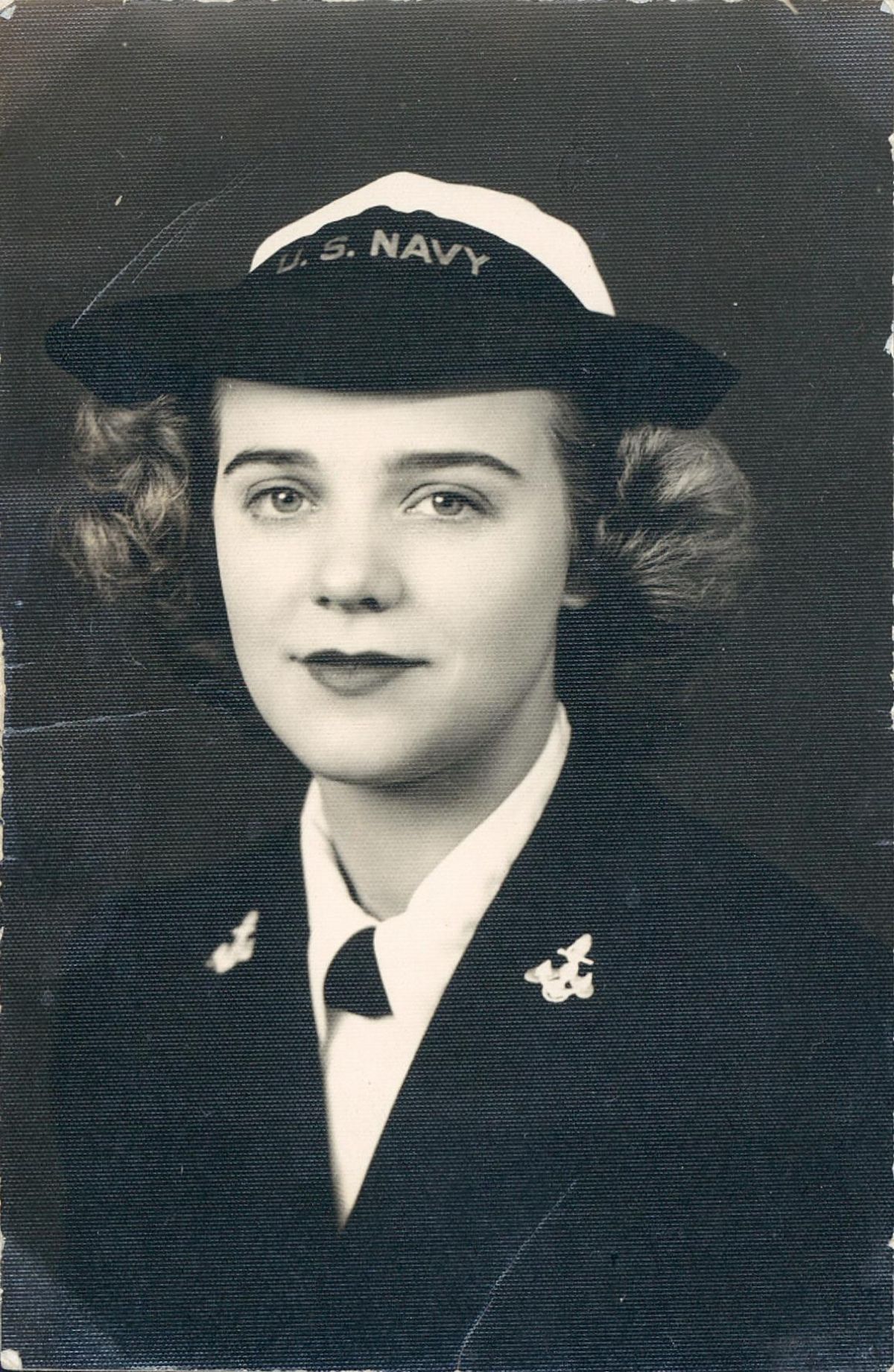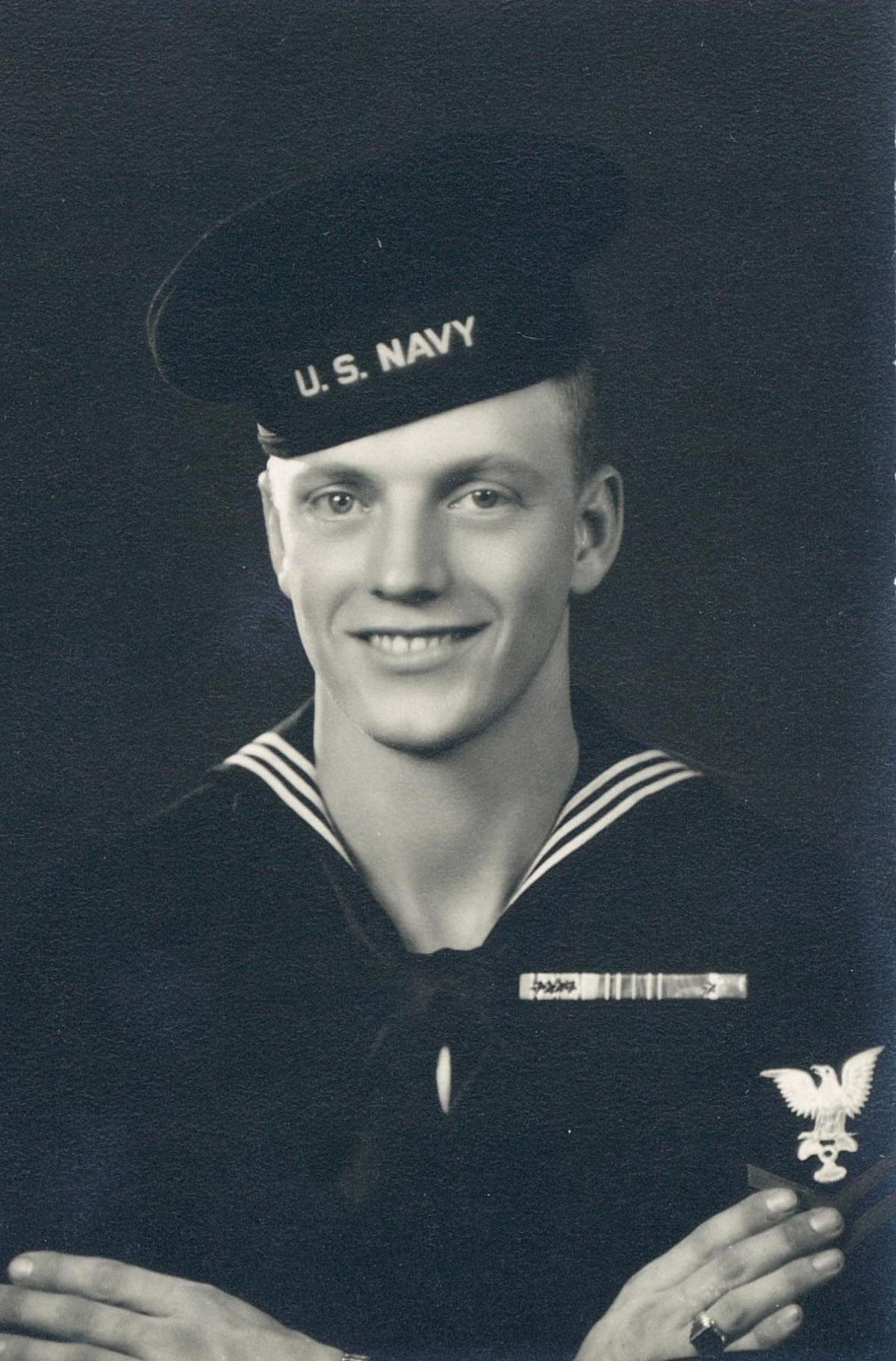Legacy of War: Of family’s five children serving in World War II, three came home alive
Irene (Bang) Albro (Courtesy of the family)
With five children serving in World War II, Sarah Bang knew what it meant when two men in uniform approached her Spokane Valley home in 1945.
“The only thing she could think of was ‘Which one?’ ” said Gloria Bang, Sarah’s daughter-in-law.
Not long after, two uniformed men came a second time.
Peter Bang got word in a telegram that two of his brothers were dead. He was in India, an Army private working to supply troops fighting the Japanese in China.
“They sent me a little yellow telegram,” he said.
His brothers lost their lives only three weeks apart in March 1945.
Sidnie Bang, an Army corporal in a tanker battalion who had landed on the beaches of Normandy and was wounded in action three times, was killed on the front lines in Luxembourg.
Melvin Bang, an Army corporal who filed saws for troops building roads in the Philippines, died from hepatitis there.
With two Bang brothers dead, Peter and his brother John were pulled from action. Their sister Irene, a Navy radio operator in California, remained on duty.
“They sent me home all alone,” Peter, 91, remembered recently at his Spokane Valley home. “I didn’t come home with a company, just a slow boat from China. It took me probably four months.”
And by then, the war was almost over. The rest of his company arrived back in the United States not long after him.
John Bang was serving in the Navy on the USS Carter Hall in the South Pacific and had been corresponding regularly with Melvin in the Philippines.
“John had permission to go ashore, and they were going to be able to spend the day together,” said Gloria Bang, John’s wife.
But the last letter John sent to Melvin was returned, marked “Deceased.”
“He said it hit him like a ton of bricks,” Gloria said. “The military didn’t do anything to console John, and for a few days he kept quiet.”
But he eventually approached his commanding officer, who informed him he would be heading home, apparently at the urging of his mother.
John learned about Sidnie in a Western Union telegram – which misspelled his brother’s name – sent to his ship: “YOUR BROTHER SIDNEY DIED OF WOUNDS IN LUXEMBURG MARCH 2. LOVE=MOTHER”
Sarah and Martin Bang, parents of the Bang brood, raised their large family through the Great Depression in what is today the 7000 block of East Eighth Avenue in Spokane Valley.
Surviving members describe a strong working-class family rooted firmly in its Norwegian origins and the Lutheran Church. They dressed up for church on Sundays and Sarah had the kids dress in church clothes again for school every Monday.
Once in the fight in World War II, the brothers and sisters corresponded with each other and their parents.
“If the fruit cake you sent gets here in the same good condition as it did last year it will be swell, but the way it is now I won’t be able to get anybody anything for Christmas this year, so if not, I’ll make up for it next year and hope all have a well and Merry Christmas this year,” John Bang wrote to his parents in November 1944 when he was temporarily back in San Francisco.
When the kids were younger they explored the hills and trails near their home, tinkered around at a nearby junkyard owned by a family friend and worked on cars.
“Us kids were close,” Peter Bang said. “With a big family like that, you just played together and did everything together.”
But the family experienced hardship and tragedy well before the war. Sarah had two stillborn children, and two other boys died as babies. Around the time 1-year-old Joseph Russell Bang died, the family’s house burned down while they were at church.
They rebuilt with help from their church, Bethany Lutheran. The new home was bigger, but still had only two rooms for the eight children: one for girls and one for boys.
“They slept upstairs, and it wasn’t totally finished,” Gloria said. “And so they’d wake up in the morning with snow on their beds.”
The deaths of Melvin and Sidnie were not the beginning of the family’s tragedy, nor were they the end.
In July 1945, 13-year-old Pearl Bang was playing on a swing at the junkyard near the family home when it collapsed. A piece of the swing ruptured her stomach; she died the next day at Deaconess Hospital.
Elsie Neal, Sarah and Martin’s granddaughter who grew up next door, said Pearl’s death on top of the loss of her sons sparked a long period of depression in Sarah. Her grandmother sometimes spent all day at Pearl’s grave in Riverside Cemetery, said Neal, who was told the story by her mother, Borgnie Bang.
“When Pearl died she would go out to the cemetery and sit there, and she just mourned,” Neal said.
Around this time two of Sarah and Martin’s grandchildren moved in with them. And with Elsie next door, their life became busier. Surrounding Sarah with grandchildren was part of the strategy her children devised to help their mom.
“I heard once that if it wasn’t for us grandchildren she would have had a heck of a time, but she had to keep going for us,” said Linda Sweet, who was raised by her grandparents until she was in junior high school.
Sarah also became active in the American Gold Star Mothers, an organization of moms who lost children in the war. When she dressed for church she always wore two gold star pins, one for each son who died in the war.
Family members said it was mostly their faith that carried Sarah and the rest of them through the tragedies of 1945.
“It was their belief in God and just believing that somehow it was for the good,” Gloria said.
By the time her grandchildren were old enough to form memories of Sarah in the 1950s and 1960s, they didn’t notice depression.
“It was always happy family time when we saw them,” said John and Gloria’s daughter, Barbara Rusch.
But the pain of 1945 would emerge from time to time.
Sweet remembers attending the Armed Forces Lilac Parade every year with her grandparents.
“She’d about bawl when she would see a tank go by,” Sweet said. “You could see the tears in her eyes.”
Sarah and Martin, who died in the 1970s, never sold a black 1940 Ford Deluxe sedan that Melvin bought before he went to war. Their grandchildren say it was just too hard to part with. After his parents died, Peter kept the car until the late 1990s.
“I can remember traveling in it,” Neal said. “The back seat was huge; it fit like five of us cousins.”
Sarah died in 1971 after suffering a heart attack. She always carried a large purse.
“She was a little, short lady, and she kept everything in her purse,” Gloria said.
When family members went through it, they found two notes from the military announcing the deaths of Sidnie and Melvin.
“She was carrying them in her purse all those years,” Sweet said.
Peter and John’s children say their dads didn’t talk much about the war.
But John did pass along a few stories before he died in 2005. The USS Carter Hall had a submersible dry dock where crews fixed smaller ships at sea. He remembered when two torpedoes were heading for his ship. They missed, passing under the shallow-hulled ship. He also told of the ship’s ritual when passing the equator, said his son, Brian Bang. The crew would flood the back of the ship and party in the makeshift swimming pool.
John earned an engineering degree from Washington State College on the GI Bill and worked at Boeing for 31 years. He and Gloria had two children.
Irene, the Navy radio operator, was a code breaker for part of the war. After it ended, she earned a pharmacy degree at Washington State, married and went on to become a pharmacist. She died in 2011.
Christi Strozyk said it was only in later years that her dad, Peter, fully realized the work he did in World War II was not only important, but appreciated.
After his children were grown, he helped organize Army reunions. About 15 years ago, he built a shadow box to honor Sidnie and Melvin. It includes one of their Purple Hearts and hangs in a bedroom at his home. He took an Honor Flight in 2010 to see the National World War II Memorial in Washington, D.C.
Peter drove trucks in India and Burma and was based in Ledo, India, as they worked to supply troops in China.
At one point, the Japanese had the Americans surrounded, but they withdrew.
“About three days and three nights we didn’t get any sleep,” said Duane Peterson, who served with Peter in India and now lives in Salt Lake City.
After the war, Peter became a mechanic, or “knucklebuster” as he calls himself, at two shops in the Valley. He has three children.
“I lost two brothers and a sister at the same time,” Peter said. “I was just lucky to get home.”
Sarah and Martin’s grandchildren say they remain close and gather annually for a family picnic and again to bake Norwegian cookies during the holidays.
“We talk about Sidnie, Melvin and Pearl often,” Neal said. “They are still part of our family – we are just sad we didn’t get to know them. We grieve for them that they lost their lives at such a young age, but were brave enough to fight for their country. We think if they would have survived, we would have so many more cousins.”







